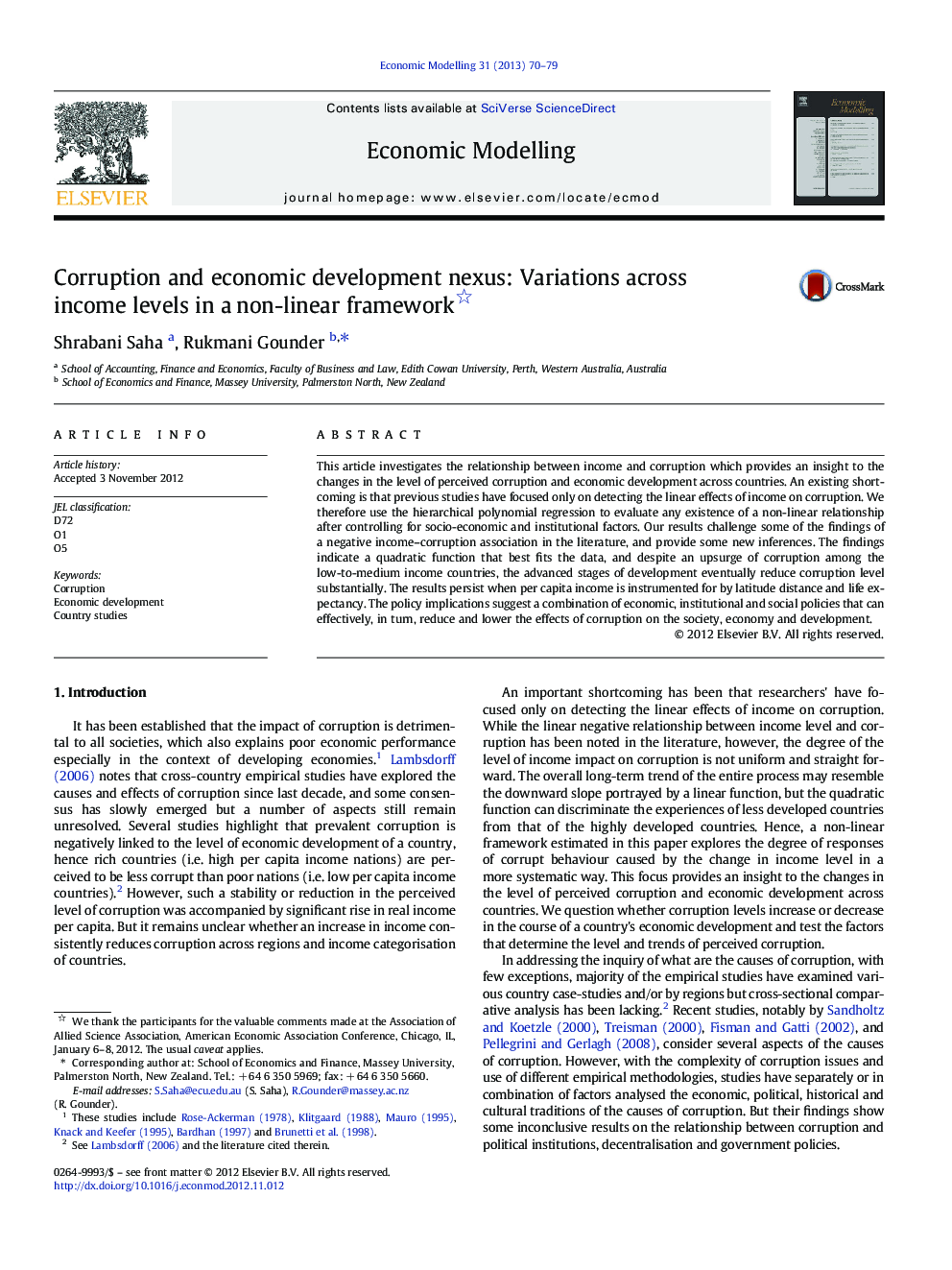| کد مقاله | کد نشریه | سال انتشار | مقاله انگلیسی | نسخه تمام متن |
|---|---|---|---|---|
| 5054793 | 1476537 | 2013 | 10 صفحه PDF | دانلود رایگان |
This article investigates the relationship between income and corruption which provides an insight to the changes in the level of perceived corruption and economic development across countries. An existing shortcoming is that previous studies have focused only on detecting the linear effects of income on corruption. We therefore use the hierarchical polynomial regression to evaluate any existence of a non-linear relationship after controlling for socio-economic and institutional factors. Our results challenge some of the findings of a negative income-corruption association in the literature, and provide some new inferences. The findings indicate a quadratic function that best fits the data, and despite an upsurge of corruption among the low-to-medium income countries, the advanced stages of development eventually reduce corruption level substantially. The results persist when per capita income is instrumented for by latitude distance and life expectancy. The policy implications suggest a combination of economic, institutional and social policies that can effectively, in turn, reduce and lower the effects of corruption on the society, economy and development.
⺠The paper investigates the relationship between income and corruption. ⺠We use the hierarchical polynomial regression to evaluate the relationship. ⺠The analysis is by income categorisation of countries. ⺠The findings show a quadratic relationship and measure threshold points. ⺠Advance stages of development reduce corruption substantially in developing countries.
Journal: Economic Modelling - Volume 31, March 2013, Pages 70-79
